How to Talk to Kids about the Capitol Breach
0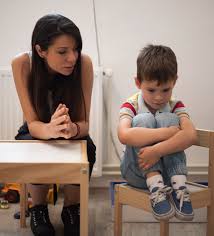 The world moves so quickly. Just as we, as adults, are trying to process the events that unfolded in Washington D.C. yesterday afternoon, so many of us are called upon today to help our students cope with their intense thoughts and feelings.
The world moves so quickly. Just as we, as adults, are trying to process the events that unfolded in Washington D.C. yesterday afternoon, so many of us are called upon today to help our students cope with their intense thoughts and feelings.
Here are a list of resources, compiled for those of you navigating difficult discussions with children and adolescents.
Teaching Tolerance–When Bad Things Are Happening
Responding to Events at the Insurrection of the US Capitol
Resources for Teachers on the Days After the US Capitol
Caring for Students in the Wake of a Traumatic News Event
Engaging Kids In Civil Discourse
How to Talk to Your Kids About the Breach at the U.S. Capitol
Talking to Kids About Violence: Tips for Parents & Teachers
Responding to Children’s Emotional Needs During Times of Crisis
ASCA Webinar: Group Activities to End Bullying
0Presenting to ASCA professionals is always one of my favorite things to do! I love the energy and the generous spirit of collaboration among professional School Counselors!
Here’s a link to my most recent ASCA webinar, Group Activities to End Bullying (which includes ideas for engaging at home learners!), along with feedback from an attendee:
I just watched the ASCA webinar that you led and I just wanted to say THANK YOU! It was such a helpful training with tons of resources that I will be using immediately. A lot of webinars tend to take the first twenty minutes to go over credentials and books they have written so thank you so much for an organized, well-rounded webinar for school counselors. –Kelsey Brand, School Counselor, Allen Jay Elementary
Elaboration on ideas + full lesson plans can be found in my 8 Keys to End Bullying Activity Book 🙂
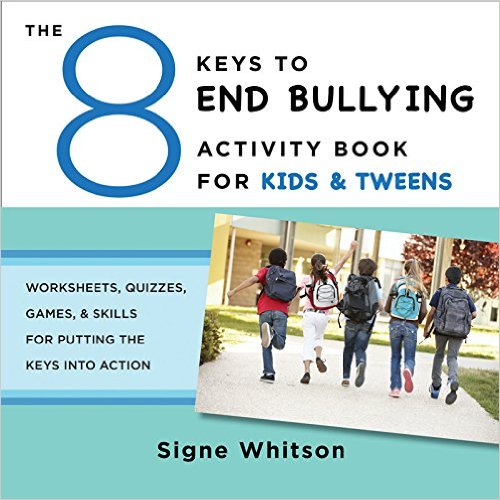
How to Listen So that Your Child Will Talk About Bullying
0October is National Bullying Prevention Month. In hopes for more civility and decency nationwide, among  people of ALL ages, I’ll be sharing some key articles, strategies and insights. Please read and share with those who work and live with school-aged kids!
people of ALL ages, I’ll be sharing some key articles, strategies and insights. Please read and share with those who work and live with school-aged kids!
How to Listen So that Your Child Will Talk About Bullying
In the last several years of working as a School Counselor and speaking with professionals, parents, and students across the United States on the topic of Bullying Prevention, one of the observations that stands out to me the most is that parents, in general, are very eager to talk about bullying while their kids, on the other hand, seem to want to do anything but talk to their parents about this topic. The more parents pry, the more kids withdraw. The more parents push, the harder kids pushback—with excuses, minimizations, abrupt subject changes, stonewalling, silence, and sometimes even complete denial that a peer problem exists.
Why is it that so many young people are so loathe to talk to their caregivers about bullying? The more I ask students this question, the more often they tell me some version of this frustrated rationale:
“If I tell my parents, they are going to make a big deal out of it and tell everyone what’s happening to me.”
Or
“If I tell my parents, they’ll rush into school to try to meet with the Principal, which will definitely make things way worse for me.”
What can parents, caregivers, educators, and other trustworthy adults do to help a young person feel safe enough to confide in them about a bullying situation? How can you make your child feel supported—instead of embarrassed or endangered—enough to tell you when they really need your help?
When I ask school-aged kids how they would like their parents to respond when they tell them about a bullying situation, again the responses are nearly universal. Most commonly, kids tell me, “I just wish they’d listen.” This is frequently followed by, “I wish they’d give me some advice but let me try to handle it on my own first.”
What follows are five guidelines for parents and professionals on how to listen well and respond in helpful ways when a young person reports an incident of bullying:
1. Stay Calm
First and foremost, when a young person takes the leap of faith to talk to you about a bullying situation, stay calm. Avoid freaking out. The dynamics they describe may be very run-of-the-mill or they may be entirely appalling, but either way, your role as a helpful adult is to listen well and respond as if the situation is completely manageable. The steadfastness of your response will go a long way in shaping the child’s attitude as the two of you begin to move forward toward solutions.
2. Express Sympathy
Next, it is helpful to express sympathy to the child. Something as simple as, “I am sorry this is happening to you” goes a long way in signaling to the young person that the dynamics they have described are not just a “normal” part of growing up and that you feel badly that they have been on the receiving end of cruelty.
The remainder of this post is available on Psychology Today. Click below for the direct link or cut and paste the following one in your browser: https://www.psychologytoday.com/us/blog/passive-aggressive-diaries/201610/how-listen-so-kids-will-talk-about-bullying
How to Listen So that Your Child Will Talk About Bullying
7 Skills for Teaching Your Child to Stand Up to Bullies
0October is National Bullying Prevention Month. In hopes for more civility and decency nationwide, among 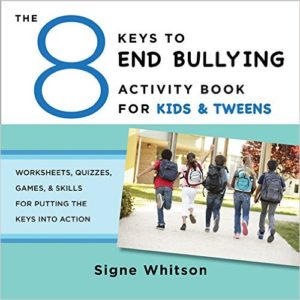 people of ALL ages, I’ll be sharing some key articles, strategies and insights. Please read and share with those who work and live with school-aged kids!
people of ALL ages, I’ll be sharing some key articles, strategies and insights. Please read and share with those who work and live with school-aged kids!
7 Skills for Teaching Your Child to Stand Up to Bullies
Media attention on youth bullying in the United States brings to public awareness what most parents and school professionals know and live on a daily basis: kids can be brutal. Celebrities and professionals have boldly weighed in, in front of the cameras, saying, “This has to end!” And they are right. The question is, how will we end it?
While school policies focus on zero tolerance and criminal penalties are wielded for some of the most egregious bullies, others know what coaches have been saying for years: the best offense is a good defense.
Am I advocating revenge? Do I think the world is going to be changed by bullied kids uniting in retaliation against their tormenters? By no means! Rather, I take that old sports-ism to encourage parents to fortify their kids with specific skills that help young people stand up for themselves and stop bullies in their tracks. In other words, I sadly don’t hold out hope that the world is going to change for our kids. I optimistically do believe, however, that our kids can change their own world by developing a set of skills that makes bullying unrewarding.
Skill 1: Stay Connected
Bullies operate by making their victims feel alone and powerless. Children reclaim their power when they make and maintain connections with faithful friends and supportive adults.
Skill 2: Create Awareness
Sometimes kids feel like adults never do anything—so why even bother to tell them about incidents of bullying? While there are cases when adults fail to acknowledge the seriousness of a situation, it is more often the case that grown-ups are not aware of what is going on. Bullies use relational aggression to inflict their violence in subtle, socially acceptable ways that tend not to register on an adult’s radar. Teach your child that it is her job to create awareness. Be clear in teaching kids that telling an adult about bullying is not a mark of cowardice, but rather a bold, powerful move.
The remainder of this post is available on Psychology Today. Click below for the direct link or cut and paste the following one in your browser: https://www.psychologytoday.com/us/blog/passive-aggressive-diaries/201110/7-skills-teaching-your-child-stand-bullies
7 Skills for Teaching Your Child to Stand Up to Bullies
Parenting the Challenging Child
0Learn how to parent the challenging child! Register today for our online course & text, bundle priced for just 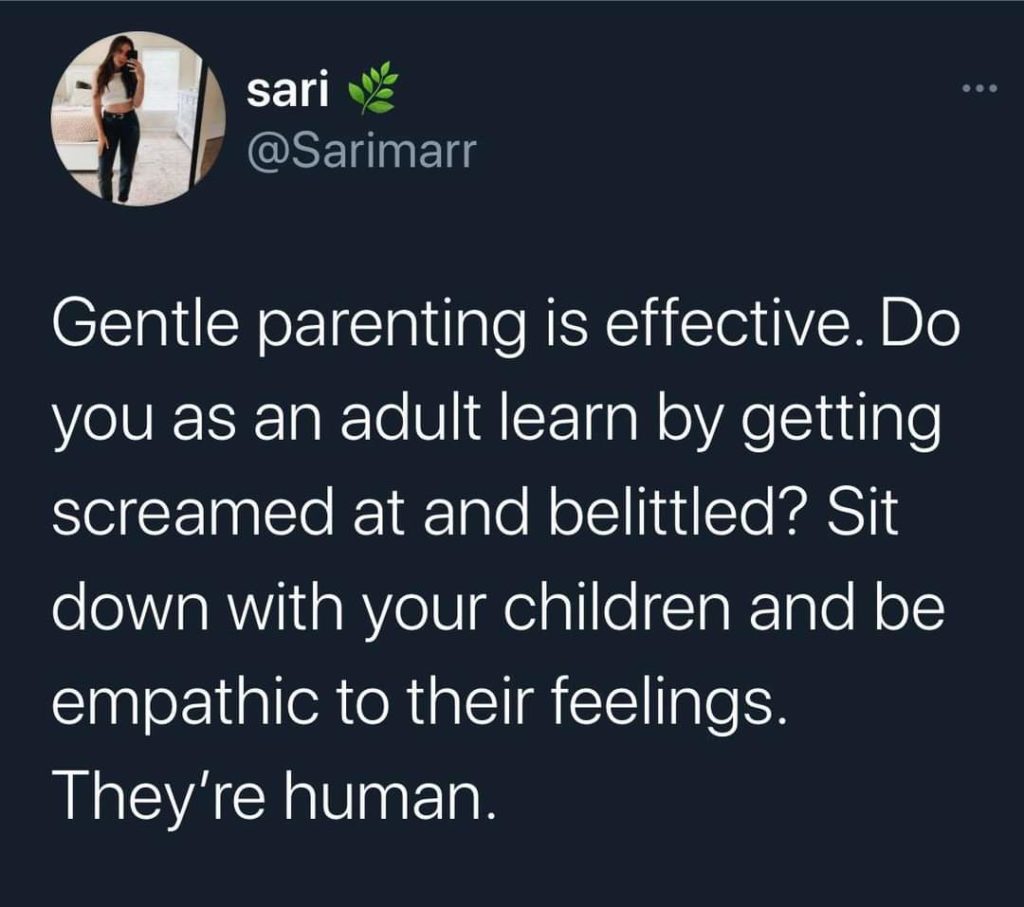 $44.99 Click here to order.
$44.99 Click here to order.
What to Do When Your Child’s Friend is a Bully
0October is National Bullying Prevention Month. In hopes for more civility and decency nationwide, among  people of ALL ages, I’ll be sharing some key articles, strategies and insights. Please read and share with those who work and live with school-aged kids!
people of ALL ages, I’ll be sharing some key articles, strategies and insights. Please read and share with those who work and live with school-aged kids!
What to Do When Your Daughter’s Friend Is a Bully
In our kids’ early school years, we spend hours arranging playdates and planning parties. We become the architects (some call it “cruise directors”) of their positive social development. With nothing but the best of intentions, we strive to help our little ones develop the skills to make and maintain friendships. Until the day they make—and tenaciously maintain—a friendship with a mean girl. Then what?
Your once uber-confident, joyful gal is now anxiously and obsessively trying to please a friend who wields her power by being un-pleasable. When that inevitable day comes when your child’s “bestie” starts acting like a “frenemy,” what should you do? Should you do anything? Parents often struggle with the question of, “Should I intervene in my daughter’s friendship problems?”
The bottom line is this; no child should have to find her way through the friendship challenges of the school years alone. Kids need adult support and insights when it comes to navigating the choppy waters of friendship, disguised as a weapon. Here are some fundamental ways parents can help:
Teach Her to Know it When She Experiences It
One of the things that makes girl bullying so insidious is its under-the-radar nature. It is things left unsaid and invitations not given. It is unexplained cut-offs in friendship. It is silence. Girl bullying is marked by crimes of omission that make it very hard for girls to put their finger on what they are experiencing in their friendships—yet the pain, humiliation, and isolation are unmistakable.
Parents play a critical role in talking to their kids about girl bullying and making them aware of the typical behaviors that mark this cruel form of social aggression. Knowledge is power; when girls know what relational aggression looks and feels like, they are better able to make a conscious choice to move away from friends who use these behaviors.
Some of the most common girl bullying behaviors that parents can make their kids aware of include:
1. Excluding girls from parties and play dates
2. Talking about parties and play dates in front of girls who are not invited
3. Mocking, teasing, and calling girls names
4. Giving girls the “silent treatment”
5. Threatening to take away friendship (“I won’t be your friend anymore if…”)
6. Encouraging others to “gang up” on a girl you are angry with
7. Spreading rumors and starting gossip about a girl
8. “Forgetting” to save a seat for a friend or leaving a girl out by “saving a seat” for someone else
9. Saying something mean and then following it with “just joking” to try to avoid blame
10. Using cell phones and/or social media to gossip, start rumors, or say mean things to a girl
The remainder of this post is available on Psychology Today. Click below for the direct link or cut and paste the following one in your browser: https://www.psychologytoday.com/us/blog/passive-aggressive-diaries/201202/what-do-when-your-daughters-friend-is-bully
What to Do When Your Daughter’s Friend Is a Bully
Bullying Prevention & Friendship Building “Virtual” Activities (ASCA)
0One of the “silver linings” of a world impacted by COVID is the tremendous collaboration and pooling of resources that has happened among School Counselors. Several weeks ago, a version of this collection of ideas (see below) to use with students in a virtual learning environment was shared in a Facebook group. I adapted it for my needs and have been using it successfully with my Middle School students. It provides 25+ fun ways to cultivate connections between those learning through in-person and virtual settings.
I would like nothing more than to share the credit–although I can’t locate the original post or author(s). I hope my good fortune in receiving several of these ideas becomes your good fortune in using them with students–and perhaps passing it on to some of your colleagues as well, as we try to build connections and enrich SEL in this unique time in history.
Here’s a link so that you can copy and customize a version for yourself.
https://docs.google.com/presentation/d/1019EH3zOXXAzbMP0Tji_ZfAHgb8gVcOyf8v8vBuN4wc/edit?usp=sharing

What Parents Can Do When Bullying is Downplayed by School
0October is National Bullying Prevention Month. In hopes for more civility and decency nationwide, among 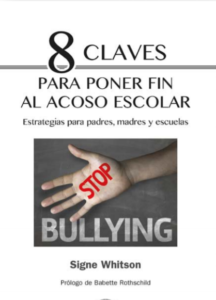 people of ALL ages, I’ll be sharing some key articles, strategies and insights. Please read and share with those who work and live with school-aged kids!
people of ALL ages, I’ll be sharing some key articles, strategies and insights. Please read and share with those who work and live with school-aged kids!
What Parents Can Do When Bullying is Downplayed by School
Your child is being bullied at school. He or she has mustered the courage to tell you about it—no small feat, considering how humiliating it can be for kids to tell their parents about maltreatment by their peers—and together, you have tried everything you can think of to manage the problem on your own.
Your child has practiced ignoring the bully, avoiding his tormentors, standing up to mean kids in assertive ways, trying to enlist his teacher’s support, and using humor to deflect the bully’s taunting. He has shut down his Facebook page and stopped texting entirely, hoping that taking himself out of the technology loop might give him some respite from the cruelty. Yet, the bullying persists … and is getting worse.
You make a decision to call your child’s teacher and report what has been going on—the name-calling, the cruel texts, the exclusion at lunch, the snickering in the halls, the shoves on the bus, and the threats of physical harm (yesterday’s warning: “I am going to f’ing end you if you come to school tomorrow”). Reaching out and asking for help was hard for you; as a parent, you desperately hoped to be able to protect your child on your own. Confident, however, that you have taken all of the right steps to manage the problem independently and knowing that the bullying (and your child’s desperation) are only getting worse, you reluctantly place a call to school. A part of you is relieved that your burden can now be shared and professionals can help with the job of keeping your child safe at school.
Your relief is short-lived.
Despite the “Bully-Free Zone” posters that line the school cafeteria walls and the Zero-Tolerance Policy that was boasted about during last September’s back-to-school night, your experience is that the school would rather not address the problem at all. The responses you get from your child’s teacher include bland lip service such as:
• I didn’t see it happening and I can’t just take your child’s word that it did.
• Kids will be kids, you know.
• This stuff just happens. It’ll all blow over soon.
• Your child just needs to have a thicker skin.
• The child you are accusing of bullying is an honor student and vice president of the student council. I just can’t believe he would do such a thing. Are you sure your child isn’t exaggerating?
More and more, as I talk with parents whose children have experienced bullying, they share this common experience of having their concerns downplayed by the very adults who are charged with keeping schoolchildren safe.
Now, before I go any further, I want to state my unequivocal support for most educators and school personnel. I have had the distinct honor and pleasure of working with hundreds of them in a professional capacity, and dozens of them through my own children’s schooling, and I recognize their role as monumental. It is my belief that most adults who dedicate their professional lives to education are heroes and I thank them endlessly for their service.
With that said, there are also adults who fail children and I don’t know any more eloquent or sophisticated way to describe my feelings about it other than to tell you that it burns me. While I understand that kids are often mean to each other—and sometimes unspeakably cruel—what I cannot wrap my mind around is when adults knowingly allow it to happen. Parents ask me: What should I do when I report bullying to school and the school downplays my concerns? This is the conversation we usually have.
First, we usually talk a bit about why some school personnel downplay reports of bullying from concerned parents.
Lack of Awareness
One recent study reports that in school settings, bullying is missed by adults 96% of the time. “How can this be?” many parents ask. Easier than it seems, I am afraid. While most teachers are very focused on what goes on in their classrooms, the majority of bullying occurs in locations like the lunchroom, the locker room, the playground, the bathroom, the hallways, the bus, and perhaps most infamously, online. When classroom teachers tell concerned parents that they are not aware of bullying incidents taking place in their classroom, they are usually quite accurate. (Why more cafeteria aides and bus drivers aren’t trained and made responsible for recognizing and responding to bullying is a whole different article.)
The flip side of adult awareness is that the thrice-failed-third-grade neighborhood meanie named Spike who jumps out in the schoolyard and demands little kids’ lunch money is a bully of yesteryear. Today’s bullies—particularly those who use relational aggression to hurt and humiliate—are often brilliant social diagnosticians who know how to manipulate their teachers just as effectively as they know how to torture their peers. Yes, the straight-“A” student council president may well be the bully that “rules the school” safely below the radar of his unsuspecting teachers.
The remainder of this post is available on Psychology Today. Click below for the direct link or cut and paste the following one in your browser: https://www.psychologytoday.com/us/blog/passive-aggressive-diaries/201203/what-parents-can-do-when-bullying-is-downplayed-school
What Parents Can Do when Bullying is Downplayed at School
Teaching Assertive Anger Expression Skills to Kids
0This past week, I had the sincere joy of Zooming with a Girl Scout troop from Orange County, CA. For just under an hour, we chatted and played games from my book, How to Be Angry, with the goal of helping the girls learn important concepts about anger such as:
 Anger is a normal emotion–a natural way of feeling in response to frustrating life events
Anger is a normal emotion–a natural way of feeling in response to frustrating life events- There’s nothing wrong with feeling angry at times. It’s how we express our anger that counts!
- Three Anger Expression Styles: Passive, Aggressive & Assertive…made MUCH more fun and relatable by teaching kids to identify styles according to their Spirit Animals, the turtle, the tiger, and the giraffe.
- How facial expressions and tone of voice impact the words we choose
- How to use I-Messages to express anger in honest, direct, straight-up ways without hurting or harming anyone else–just like a giraffe!
.
The workshop encouraged parents and kids to work together to learn and practice assertive expression styles. Here’s what some of the attendees had to say:


